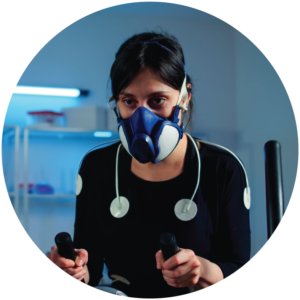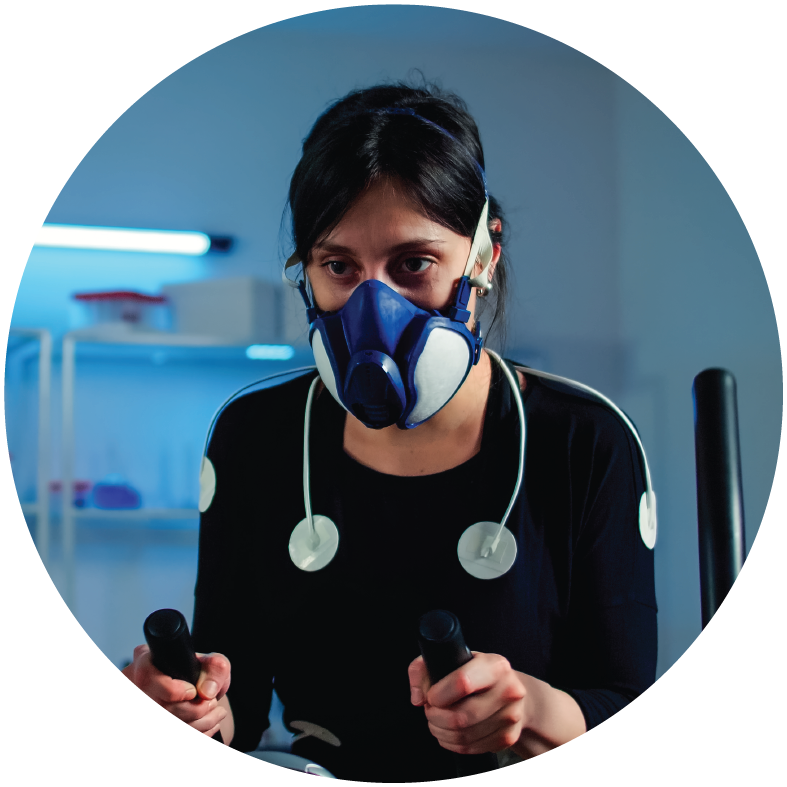Dr. Alexandre Almorad
General cardiology. Arrhythmias. Pacemakers and defibrillators. Sport cardiology.
Tuesday 18:00-21:00 & Friday 09:00-13:00

The stress test assesses your heart’s ability to respond to stress. While you pedal a bicycle against gradually increasing resistance, your blood pressure, heart rate and electrocardiogram are recorded.
The purpose of the stress test is to assess :
Conduct of the examination :
A nurse will place 10 electrodes on your chest. For men, it is sometimes necessary to partially shave the chest and back for good contact with the electrodes. The blood pressure and electrocardiogram are recorded during and after your effort. Gradually, the effort will become more and more difficult. The nurse will let you cycle until the fatigue threshold is reached. It is important to make the effort as long as possible in order to be able to assess your maximum effort capacity as well as possible and to have the best chance of detecting an abnormality in the blood flow to your heart on the electrocardiogram. The test takes between 15 and 20 minutes.
General cardiology. Arrhythmias. Pacemakers and defibrillators. Sport cardiology.
Tuesday 18:00-21:00 & Friday 09:00-13:00
General cardiology, arrhythmias. pacemakers and defibrillators, Brugada syndrome, cardiopediarics.
Friday 09:00 – 17:00
Prof. Gian Battista Chierchia
General Cardiology, Arrhythmias, Atrial fibrillation
Dr. Ingrid Overeinder
General cardiology, heart failure, arrhythmias.
Monday 9:00 – 13:00
Dr. Lionel Rozen
General Cardiology, Echocardiography, Arrhythmia, Pacemaker and Defibrillators, Cardio-oncology, Stress test.
Wednesday 8:30 – 12:30 | 13:30 – 17:30 & Friday 17:50 – 18:50
General cardiology. Arrhythmias. Pacemakers and defibrillators.
Monday from 18:00
